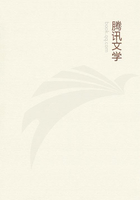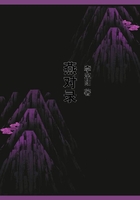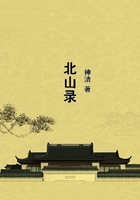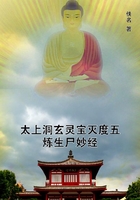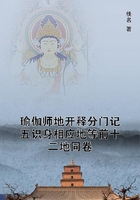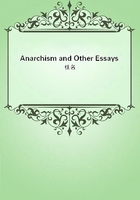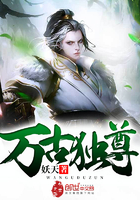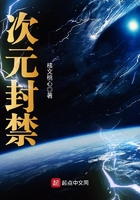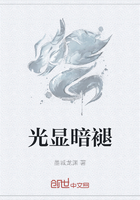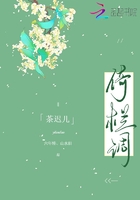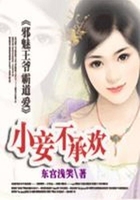1. The Transference to Inanimate Objects
WE have now traced the practice of killing a god among peoples in the hunting, pastoral, and agricultural stages of society; and I have attempted to explain the motives which led men to adopt so curious a custom. One aspect of the custom still remains to be noticed. The accumulated misfortunes and sins of the whole people are sometimes laid upon the dying god, who is supposed to bear them away for ever, leaving the people innocent and happy. The notion that we can transfer our guilt and sufferings to some other being who will bear them for us is familiar to the savage mind. It arises from a very obvious confusion between the physical and the mental, between the material and the immaterial. Because it is possible to shift a load of wood, stones, or what not, from our own back to the back of another, the savage fancies that it is equally possible to shift the burden of his pains and sorrows to another, who will suffer them in his stead. Upon this idea he acts, and the result is an endless number of very unamiable devices for palming off upon some one else the trouble which a man shrinks from bearing himself. In short, the principle of vicarious suffering is commonly understood and practised by races who stand on a low level of social and intellectual culture. In the following pages I shall illustrate the theory and the practice as they are found among savages in all their naked simplicity, undisguised by the refinements of metaphysics and the subtleties of theology.
The devices to which the cunning and selfish savage resorts for the sake of easing himself at the expense of his neighbour are manifold; only a few typical examples out of a multitude can be cited. At the outset it is to be observed that the evil of which a man seeks to rid himself need not be transferred to a person; it may equally well be transferred to an animal or a thing, though in the last case the thing is often only a vehicle to convey the trouble to the first person who touches it. In some of the East Indian islands they think that epilepsy can be cured by striking the patient on the face with the leaves of certain trees and then throwing them away. The disease is believed to have passed into the leaves, and to have been thrown away with them. To cure toothache some of the Australian blacks apply a heated spear-thrower to the cheek. The spear-thrower is then cast away, and the toothache goes with it in the shape of a black stone called karriitch.
Stones of this kind are found in old mounds and sandhills. They are carefully collected and thrown in the direction of enemies in order to give them toothache. The Bahima, a pastoral people of Uganda, often suffer from deep-seated abscesses: their cure for this is to transfer the disease to some other person by obtaining herbs from the medicine-man, rubbing them over the place where the swelling is, and burying them in the road where people continually pass; the first person who steps over these buried herbs contracts the disease, and the original patient recovers.
Sometimes in case of sickness the malady is transferred to an effigy as a preliminary to passing it on to a human being. Thus among the Baganda the medicine-man would sometimes make a model of his patient in clay; then a relative of the sick man would rub the image over the sufferer's body and either bury it in the road ?? it in the grass by the wayside. The first person who stepped over the image or passed by it would catch the disease.
Sometimes the effigy was made out of a plantain-flower tied up so as to look like a person; it was used in the same way as the clay figure. But the use of images for this maleficent purpose was a capital crime; any person caught in the act of burying one of them in the public road would surely have been put to death.
In the western district of the island of Timor, when men or women are making long and tiring journeys, they fan themselves with leafy branches, which they afterwards throw away on particular spots where their forefathers did the same before them. The fatigue which they felt is thus supposed to have passed into the leaves and to be left behind. Others use stones instead of leaves. Similarly in the Babar Archipelago tired people will strike themselves with stones, believing that they thus transfer to the stones the weariness which they felt in their own bodies. They then throw away the stones in places which are specially set apart for the purpose. A like belief and practice in many distant parts of the world have given rise to those cairns or heaps of sticks and leaves which travellers often observe beside the path, and to which every passing native adds his contribution in the shape of a stone, or stick, or leaf. Thus in the Solomon and Banks' Islands the natives are wont to throw sticks, stones, or leaves upon a heap at a place of steep descent, or where a difficult path begins, saying, There goes my fatigue. The act is not a religious rite, for the thing thrown on the heap is not an offering to spiritual powers, and the words which accompany the act are not a prayer. It is nothing but a magical ceremony for getting rid of fatigue, which the simple savage fancies he can embody in a stick, leaf, or stone, and so cast it from him.
2. The Transference to Animals

